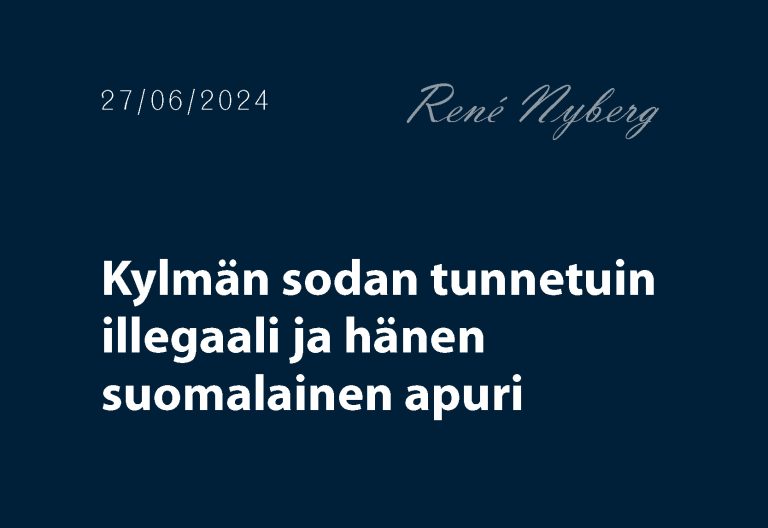Now who was Colonel Rudolf Abel? An illegal spy caught by the FBI in Brooklyn in 1957 after a Soviet defector had betrayed him. I had my laughs reading Donovan and also Abel characterizing the defector, an ethnic Finn, but not a Finnish citizen, who during the war had served the Red Army as an interrogator of Finnish POWs and then clandestinely sent to Finland, where he obtained a false identity etc. I love Donovan’s observation about his “slow Baltic mind”. Unlike Rudolf Abel, who was born in England to Russian emigre parents, Reino Häyhänen’s English was poor.
Bridge of spies
Professor Stephen Sestanovich’ class, Columbia University
27 April 2018, Washington
Is a film by Steven Spielberg, where Tom Hanks plays the lawyer and negotiator James Donovan and the Soviet spy Colonel Rudolf Abel is played by Oscar Mark Rylance who received an Oscar for best supporting actor.
As an old Berliner remembering well the Glienicke Brücke I was intrigued by the story. I enjoyed the film so much that I bought the book by the lawyer of Rudolf Abel James Donovan, published in 1964 and after the film was released republished in 2015. Took some time before I read it and in hindsight I would not have bought the book nor read it had I known in advance that 4/5 of the book was about the Abel trials all the way to the Supreme Court of the United States. But having started to read I could not stop. I am absolutely fascinated by the story after I realized the gist of the matter.
This was a time 1957 when Nikita Khrushchev claimed that there were no Soviet spies. Just imagine! The cult of razvetshiki had not yet become the staple of Soviet legends and propaganda. Stierlitz of Seventeen Moments of Spring, a TV serial from 1972 had not captivated the imagination of a young Russian boy called Vladimir Putin, who volunteered as an adolescent to join the KGB and was kindly advised to study first, preferably law.
But what was so intriguing about the book? It is the American story about the rule of law. (Recommended reading: Richard Pipes Property and Freedom)
That is the right of every individual, citizen or alien, to have the right of a fair trial.
The defendants lawyer Donovan put up a fight which was formidable, skilled and successful. His aim was to prevent a death penalty and to strengthen his argument he came up with the outlandish idea that in the future there might be an opportunity to exchange Abel against an American captured by the Soviets. Three years later Garry Powers’ U-2 was shut down by Soviet SAMs. The rest is history and the exchange of prisoners that took place on the Glienicker Brücke in 1962 was a first ever, historic and became the precedent for further, scores of similar spy swaps. The last of which took place on the very same bridge was in 1986 when Ambassador Richard Burt traveled from Bonn to preside the exchange.
I will not bother you with details. But at every juncture Donovan defended his client’s right under the constitution of the United States, particularly under the 4th Amendment. He was commended by the judges and colleagues. He kept close contact with the Justice Department and the CIA and FBI. At no point did he loose his foothold.
Donovan had served during the war as a General Counselor with the rank of Commander (Navy) in the OSS and as an assistant American prosecutor at the Nuremberg War Trials. The Brooklyn Bar association suggested him as the defendant’s lawyer.
Now who was Colonel Rudolf Abel? An illegal spy caught by the FBI in Brooklyn in 1957 after a Soviet defector had betrayed him. I had my laughs reading Donovan and also Abel characterizing the defector, an ethnic Finn, but not a Finnish citizen, who during the war had served the Red Army as an interrogator of Finnish POWs and then clandestinely sent to Finland, where he obtained a false identity etc. I love Donovan’s observation about his “slow Baltic mind”. Unlike Rudolf Abel, who was born in England to Russian emigre parents, Reino Häyhänen’s English was poor.
Donovan’s fight for the rights of the defendant under the Constitution and the defendant, who at every juncture turned down the advances of the FBI to cooperate, is a captivating story, actually incredible. The integrity of the Soviet spy Abel (his right name was Fisher, although he never admitted it) is in many ways the other side of the story. The respect of the two for each other is genuine and grew during the years of the trial and Abel’s imprisonment at the United States Penitentiary, Atlanta.
The book is one of the best defenses of the benefits and the logic of rule of law I have ever read. Donovan was well aware that a Soviet court would never have acted the way the American courts did. Just imagine Donovan defended Abel before the Supreme Court, which confirmed the verdict by 5 to 4. This was also the argument of the critics, why treat a commie, a Soviet spy like this.
The Fourth Amendment as part of the Bill of Rights stands at the opposite extreme of the police state philosophy to which the Soviet Union described. As Donovan drily noted the Soviet KGB Colonel was given a primer course in American law if he liked it or not.
But Donovan’s argument brings us to present day Washington. I’m suggesting nothing except stressing the rule of law and I’m doing this as a Russia hand. The Soviet Union is no more and Russia is not the Soviet Union, although old habits die hard. It is today a country literally Ruled by Man not by Law. And I do consider this to be the fundamental structural problem of Putin’s Russia.


